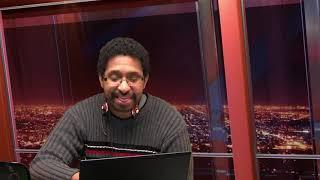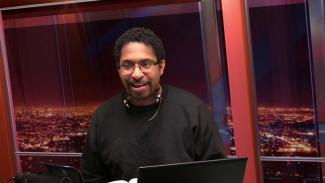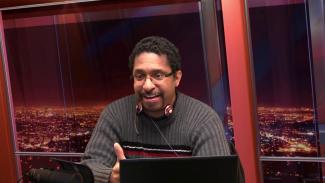Isaiah speaks about two kinds of servants. How can we identify them both? How can the prophecy of Cyrus show us how God gives us hope for the future even amid difficult and trying circumstances? What do the prophecies about the Messiah show us about Jesus' mission on earth?
Topic: The Bible
To see more broadcasts select show names, a year, or all video media.What does it mean to have a Biblical world view? Why does world view matter? How do Christians view reality different from others? Can secular and Biblical views be blended together? How does our understanding of Creation, the Fall, the Plan of Redemption, and the Second Coming, shape our perspective about the world?
How can we live by the Word of God? How can we spend time with God and why is spending that time so important? What emphasis did Jesus place on knowing and understanding scripture while He was here on earth? How can we make God our teacher when we study the Bible? How can music help us commit to memory what God says in His Word?
What do we do when we come across difficult passages in the Bible? Should difficulty make you give up your faith? Should we assume there aren't answers simply because we don't know them or they weren't revealed to us immediately? How can searching for answers be a blessing? What kind of attitude or mindset should we have when we come across difficult passages? What is the best resource to use?
How can we understand Bible prophecy? What is the historicist approach? How do we know when to apply the day-year principle? What is the difference between symbols and typology? How did Bible writers and key Biblical figures, including Jesus, demonstrate belief in these principles of interpretation? How do they help us understand the times we live in today?
Is the history of the Bible reliable? Did people like Jesus, David, Solomon, Daniel, Nebuchadnezzar, Abraham, or Moses really live? How can archaeology address the claims of secular critics that the Bible is a myth or work of fantasy? How do we know the events really happened or that these people really lived? How is higher criticism playing a role in secular public education shaping the minds of our youth today?
How should we interpret the words of the Bible? Why is it important to consider the sentences, passage, book, and even the author? How does translation play a role in our understanding of certain words and phrases? How can we understand certain passages and what is emphasized when the original language has no punctuation?
Why do we need to interpret scripture? Is there a right or wrong way? Can scripture be understood correctly? What is hermeneutics? What biases might we have in culture, language, presuppositions, or our personal lives that make it difficult to understand the Bible in its proper context? How does our sinful and fallen nature play a role? Who was the first revisionist?
How do we interpret the Bible using the Bible? Can scripture be understood or is it too ambiguous? Is there unity in scripture? How does unity impact how we interpret scripture? How did Jesus and the Bible writers view scripture? Can extra Biblical material be used? Do prophets need to be apart of the Biblical cannon?
Tradition, experience, reason, culture and the Bible all play a role in matters of faith. But, what is the proper role of each? What is the most authoritative in matters of faith, religion, practice, and theology? What does the Bible say is most authoritative? How did Jesus value tradition? How do you know when the Holy Spirit is leading? Can we trust what we feel and experience?
How did scripture form the basis for everything that Jesus did and taught? What emphasis did He place on scripture for justification of His ministry, actions, and fulfillment of prophecy? How did the apostles view scripture? What should this teach us about the Bible today? How did Jesus use the Word of God to combat the devil? Is there a difference between faith and presumption?
Can we trust the Bible? How do we know it is divinely inspired? What role did God play in the process that produced the Bible? What claims does the Bible make about itself?












